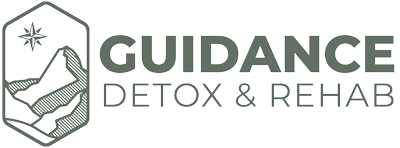Detoxing from drugs at home might seem like an option, but it’s risky and often dangerous. What feels like a “comfortable” environment can quickly become unsafe if things go wrong. If you’re serious about recovery, the safest choice is to seek professional help where you’re monitored, supported, and protected every step of the way.
In this article, we’ll learn what drug detox involves, what happens to your body during withdrawal, and the steps typically taken to manage this process safely, discuss the potential risks and benefits of at-home detox, and highlight why going to a treatment center is the safe way to detox your body.
Understanding Drug Detoxification
Detox is the process your body undergoes as it clears out harmful substances. It is usually the first step toward recovery from addiction, helping to manage withdrawal symptoms and prepare you physically and mentally for ongoing treatment.
During this time, you may experience withdrawal symptoms from alcohol addiction or drug use.
For individuals with a substance use disorder, the detox process can be challenging and may lead to medical complications if not managed properly.
Psychological risks, like anxiety and depression, often accompany this phase.
While some people prefer to detox at home instead of a detox center, it’s crucial to have a supportive environment and undergo a professional assessment beforehand to ensure safety throughout your recovery journey.
The Appeal of At-Home Detox
Detoxing in a familiar environment can significantly reduce the stress and anxiety often associated with withdrawal. When individuals are surrounded by their own belongings and daily routines, they experience a greater sense of security and emotional well-being.
Home detox also provides enhanced privacy and discretion, helping people avoid the stigma that sometimes comes with entering a rehab facility. This approach allows them to maintain their daily responsibilities, such as work or childcare, with minimal disruption. Additionally, support from loved ones is more readily available at home, offering encouragement and accountability throughout the recovery process.
From a financial perspective, at-home detox is often more affordable than residential programs, since it eliminates costs related to accommodation and facility overheads.
While alcohol or drug detox at home may seem appealing, it’s important to weigh it against the benefits of medically assisted detox for more severe substance abuse cases.
Risks and Dangers of Home Detox
Detoxing from drugs at home comes with significant risks and dangers that can threaten your health and safety.
When you attempt home detox, you may face serious medical complications such as seizures, dehydration, and delirium tremens, especially during alcohol detox or with benzodiazepines.
Drug withdrawal can trigger intense psychological risks, including anxiety, depression, and even suicidal thoughts. Some drugs have more severe withdrawal symptoms than others, which can make home detox particularly risky without proper medical supervision.
Without immediate emergency support, these situations could become life-threatening. A professional assessment is crucial before starting home detox to ensure you understand these risks.
Relying solely on a treatment approach based on a home environment increases the likelihood of complications, making it essential to evaluate safer options, such as supervised detox programs. To learn more about why professional supervision is important, read this comparison of medical vs. non-medical detox, which explains the benefits of medically supervised detox and the dangers of attempting detox at home.

Myths and Misconceptions
Many people hold misconceptions about home detox that can lead to dangerous outcomes. One common misunderstanding is that you can quickly detox from drugs without professional help. Many believe home detox is a viable alternative to medically supervised detox, ignoring the risks of severe withdrawal symptoms.
Self-medicating with unproven home remedies can worsen your situation and lead to psychological risks, including anxiety and depression. Without a proper professional assessment, you might underestimate your dependence.
Additionally, lacking emergency contacts can be catastrophic in case of a medical crisis. It’s crucial to understand that detox isn’t just a physical process; it requires support, guidance, and most of the time, professional intervention to ensure safety and effectiveness.
Alternatives to Home Detox
While home detox might seem like a convenient option, exploring medically-assisted alternatives can offer safer and more effective paths to recovery.
Consider a medically supervised outpatient detox program, where professional monitoring ensures your safety during withdrawal. Outpatient rehab also provides structured support and treatment options tailored to your needs.
These settings offer vital community support, helping you navigate psychological risks associated with detoxification. Engaging in a well-rounded detox treatment can lay a strong foundation for substance rehabilitation.
Professionals can guide you through the process, reducing health complications. Ultimately, choosing these alternatives can enhance your recovery journey, making it more manageable and effective.
Final Thoughts from Guidance Detox & Rehab
While detox from drugs or alcohol at home is possible for some, it’s crucial to prioritize safety and seek professional guidance. Understanding the risks and preparing adequately can make a significant difference in your experience. If you decide to detox at home, ensure you have support and a solid plan in place. Remember, alternatives like professional detox programs can provide a safer, more structured environment for recovery.
Guidance Detox & Rehab offers personalized support and medically supervised detox programs tailored to your needs. Our compassionate team in Utah is here to help you safely begin your recovery journey with confidence and care.
